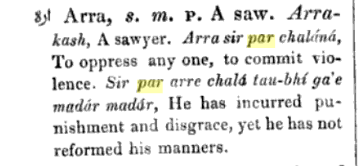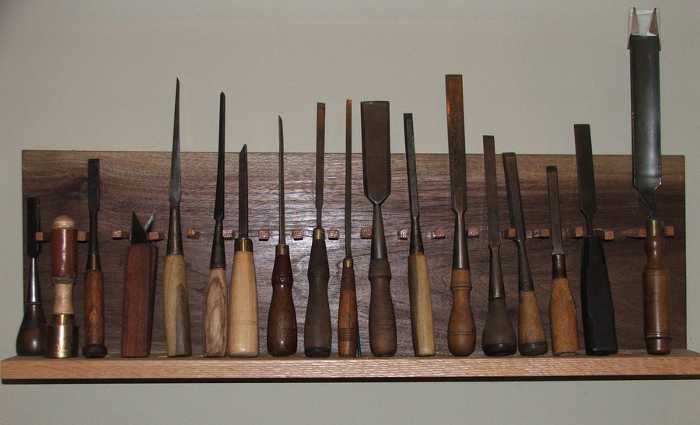FWP:
SETS == IDIOMS; MUSHAIRAH
This mushairah verse makes the cleverest possible use of an idiom. The first line offers us tarāshnā , which we take in its extended or metaphorical sense, just as in {93,3x} (where it's combined with mirror imagery). Only when we're allowed (after the traditional mushairah-performance delay) to hear the second line-- and even then, only as near the end of the line as possible-- do we get to enjoy the idiom that is suddenly revivified or made graphically real by our instant reimagining of the first line as a literal description (of course-- those saws are 'carving out' reproaches!).
Here is an intriguing documentation of the original idiom, from 'A Dictionary, Hindustani and English' (1847) by William Yates, p.18:

As another part of the possible resonance of this idiom, we could consider the martyrdom of Hazrat Zakariya, adduced by Faruqi. It is not narrated in the Qur'an, but becomes well-known in later story literature. Here is one account, for which I'm indebted to Janab Zia Inayat-Khan (Dec. 2004):
The [Urdu] compendium qiṣaṣ al-anbiyā (Kanpur, 1911) relates that when Hazrat Zakariya became the target of a crew of murderous apostates, a tree bid him to secrete himself in its hollow, and he gladly accepted the invitation. At first his pursuers were confounded, but then Satan intervened and betrayed his location, prompting the villains to produce a saw [ārā] and begin cutting. When the saw neared his head, Hazrat Zakariya let out an 'oof'. Suddenly Hazrat Jabra'il descended with a message from God: 'If you seek salvation in God rather than in a tree, refrain from 'oof'-ing'. Hazrat Zakariya submitted, and stifled his 'oof' as the saw blade dug in.
There are also apparently traditional references to the blame [tuhmat] attached to Hazrat Zakariya for the pregnancy of Maryam; people didn't know that this had actually been caused by divine intervention. I thank Janab Syed-Mohsin Naquvi (Dec. 2004) for this information.
Note for grammar fans: On chalā kiye , see {215,1}.

Nazm:
For tuhmat , [the verbs] honā , karnā , duharnā , bāñdhnā , lagānā -- all these are in idiomatic speech. But the author has composed tuhmat tarāshnā only for the wordplay with 'saw'. (162)
== Nazm page 162